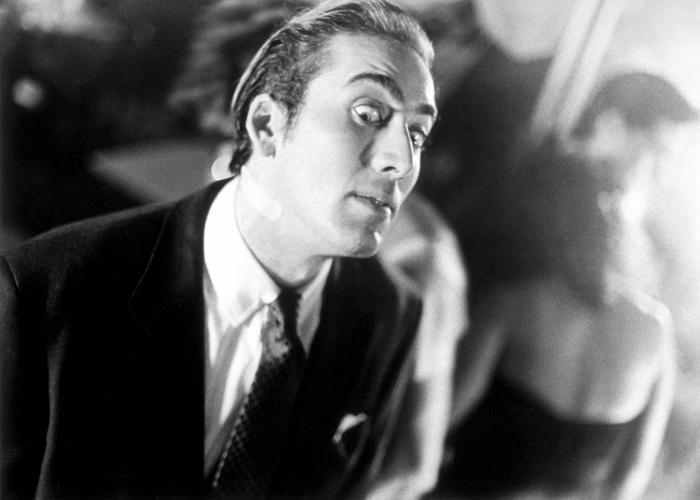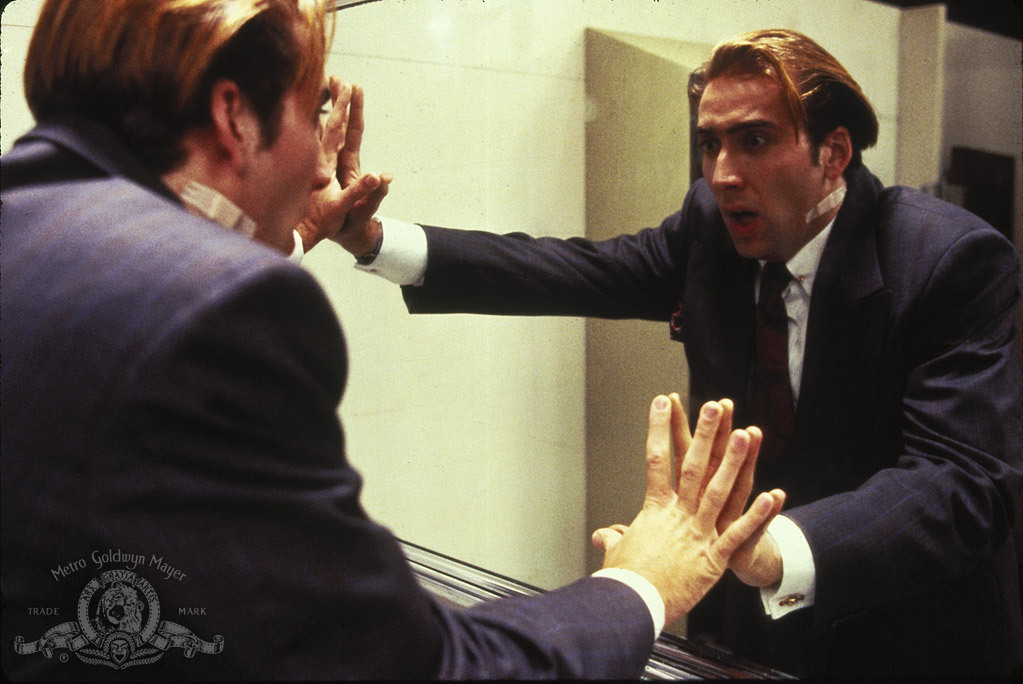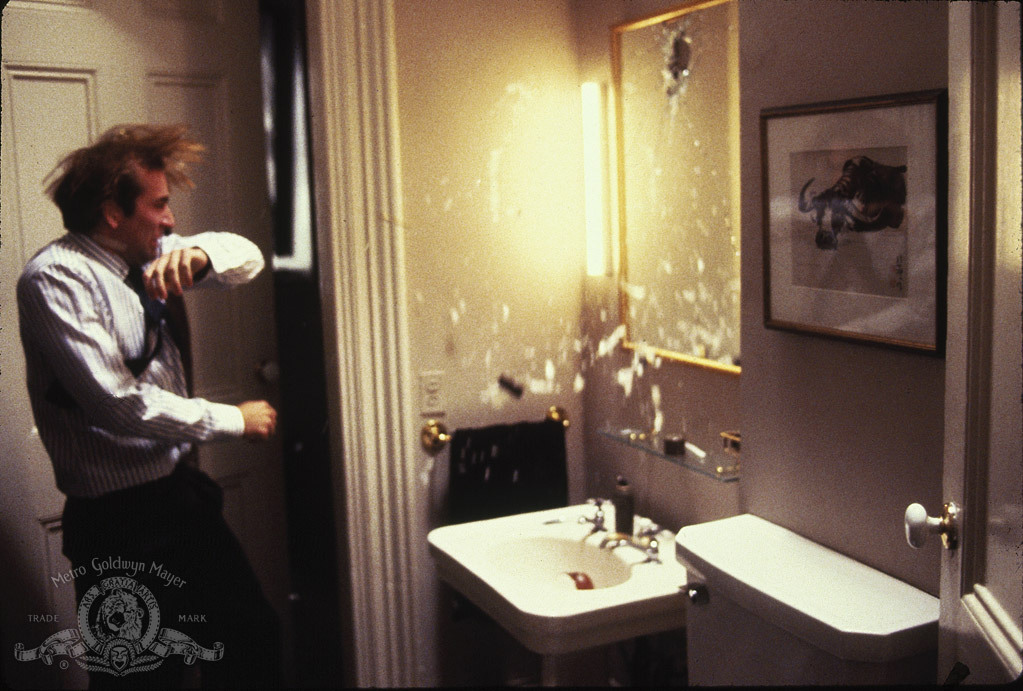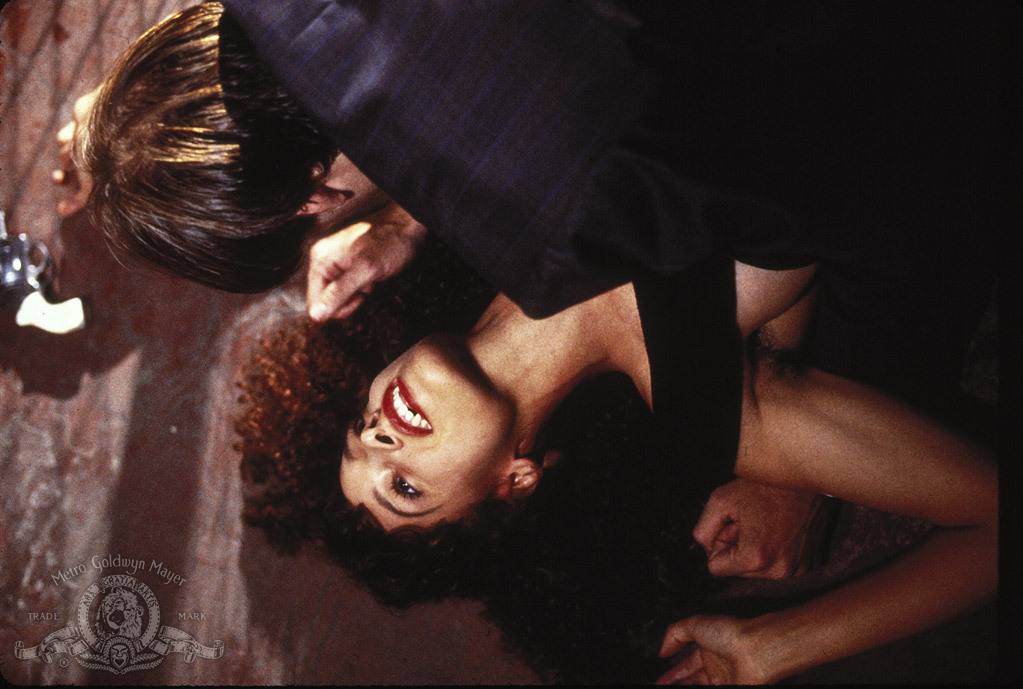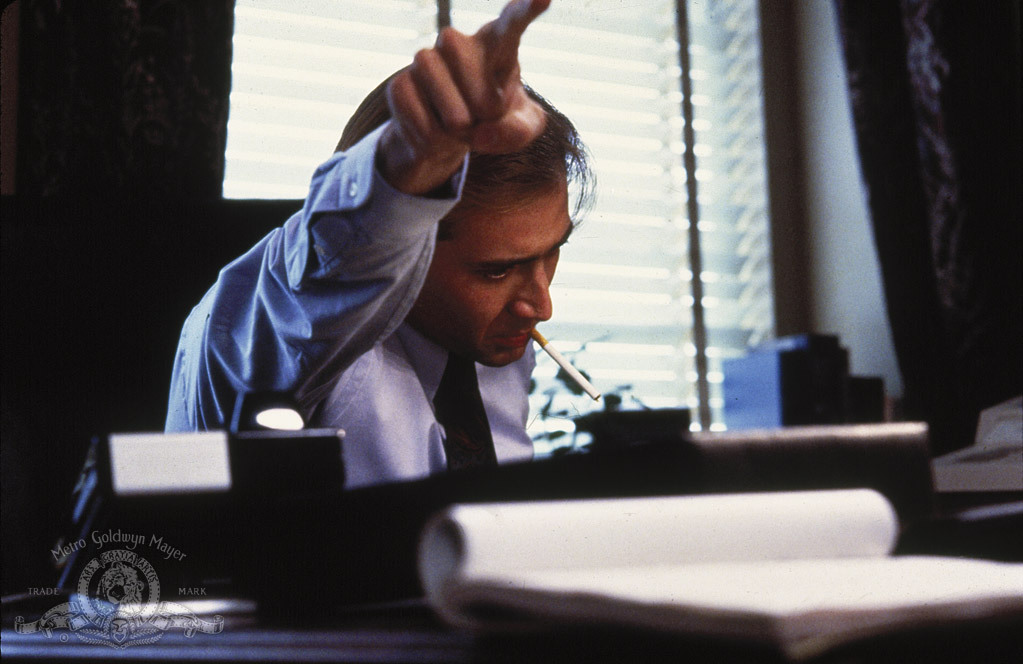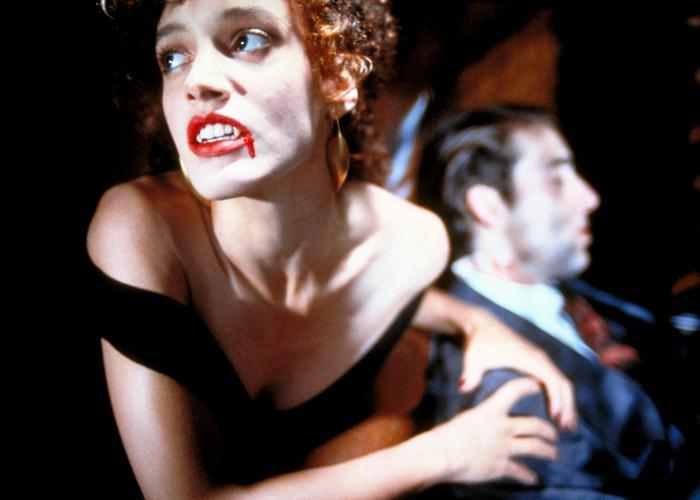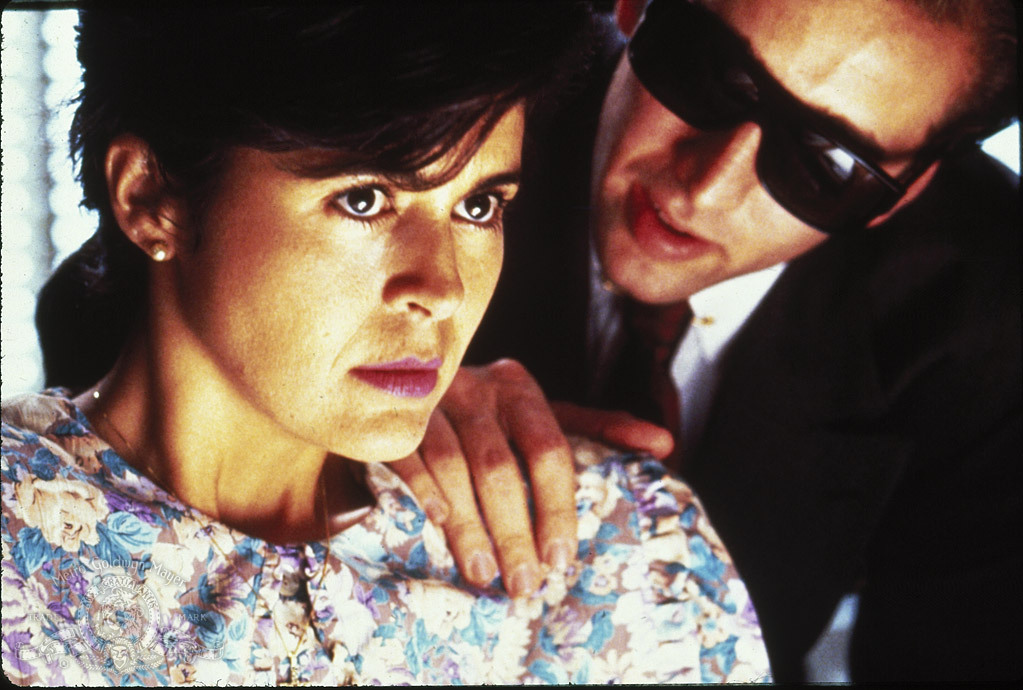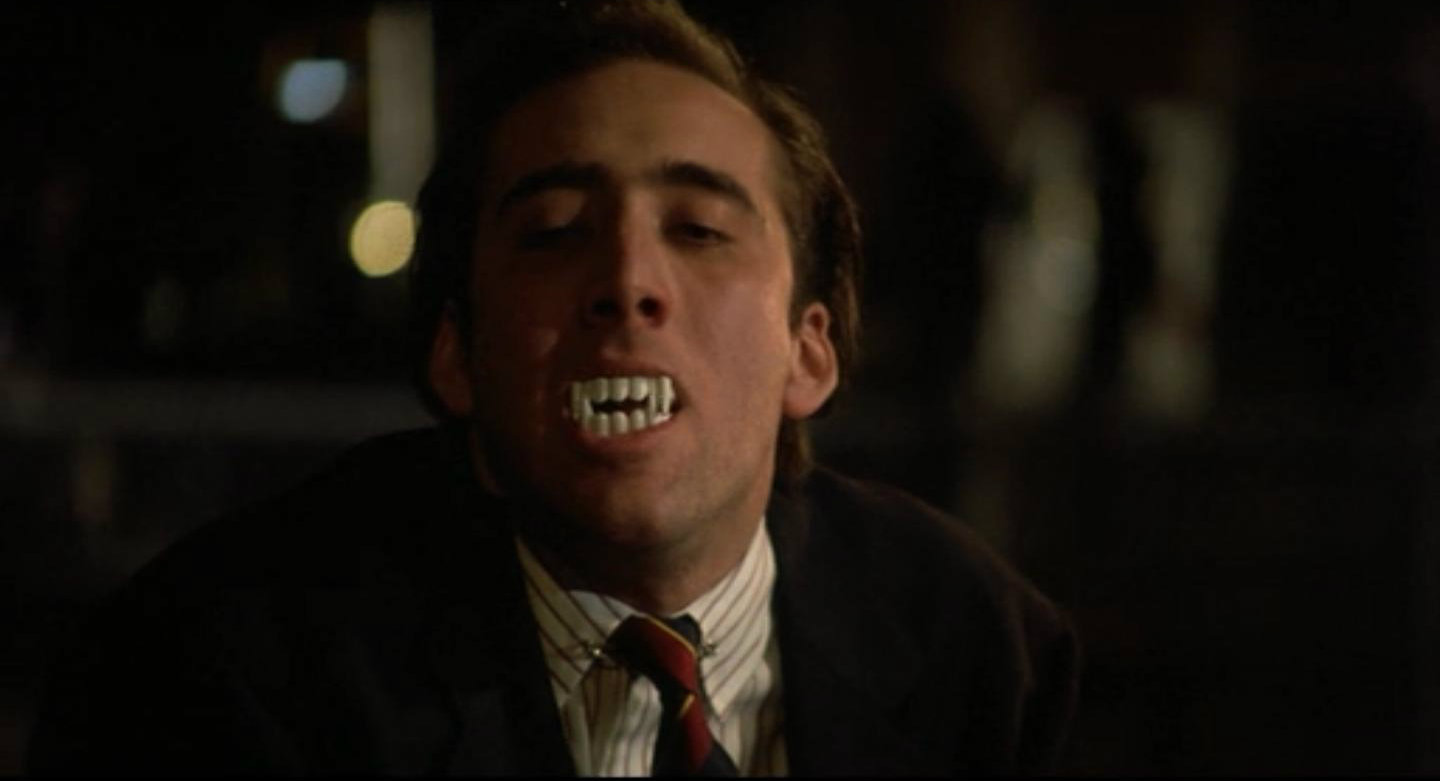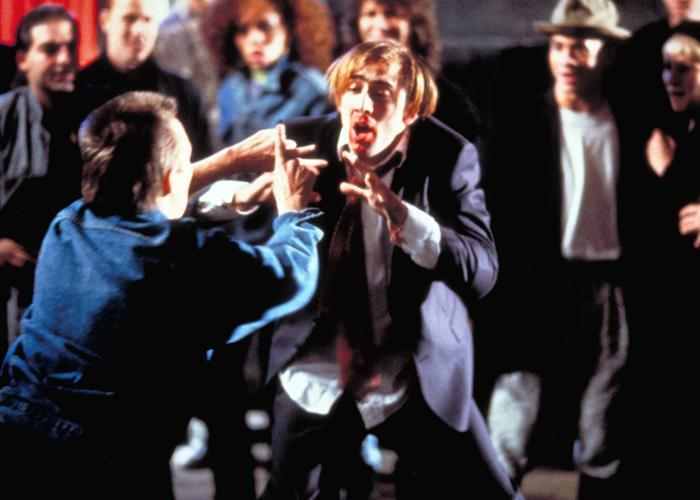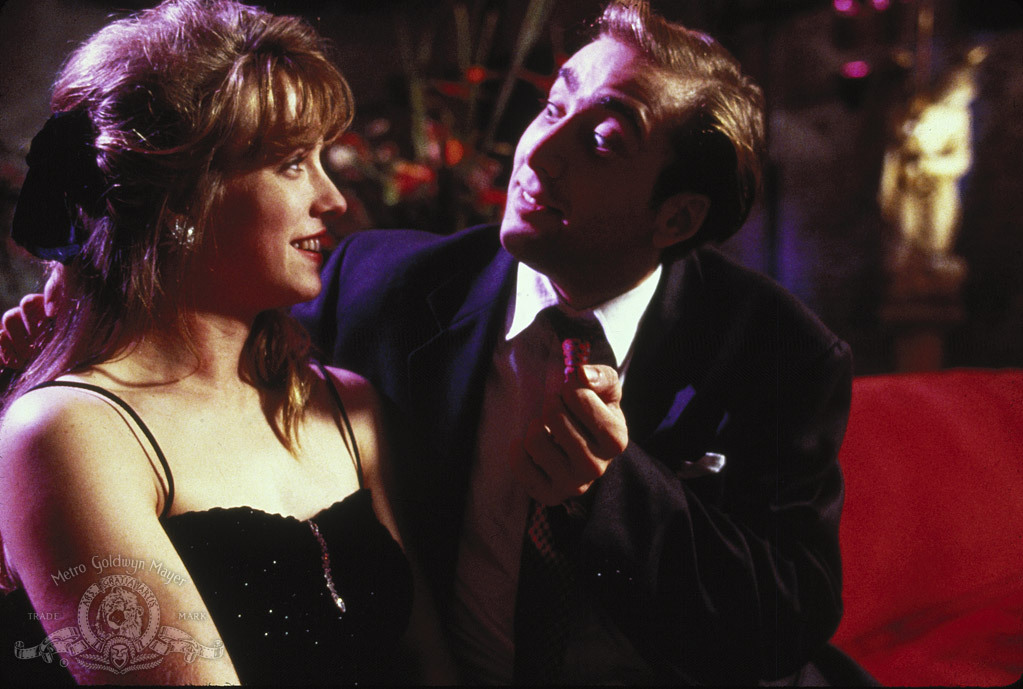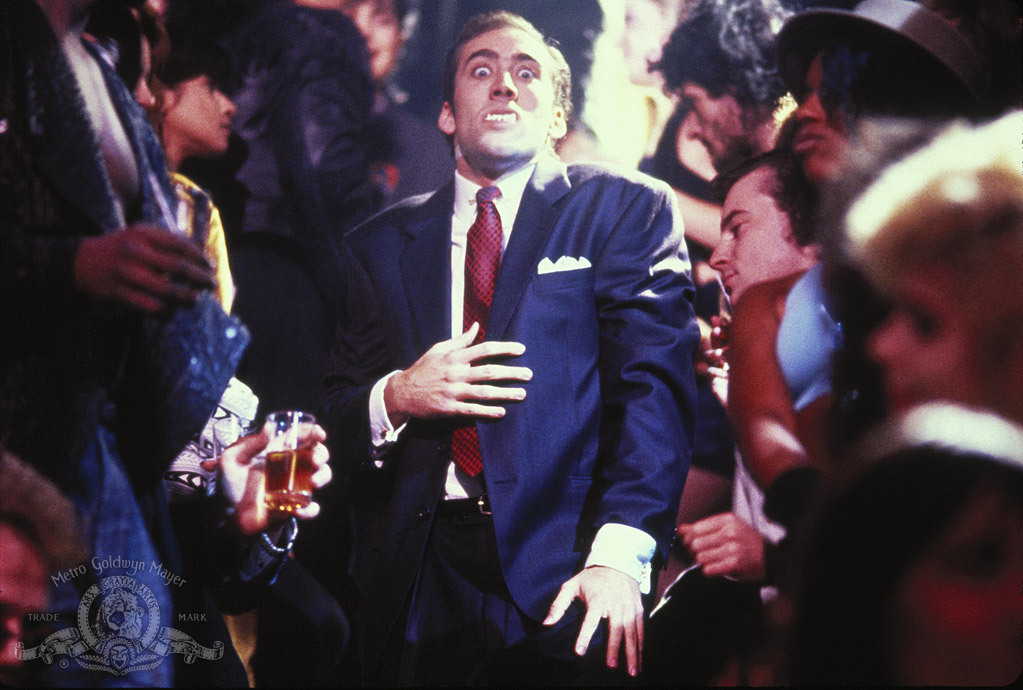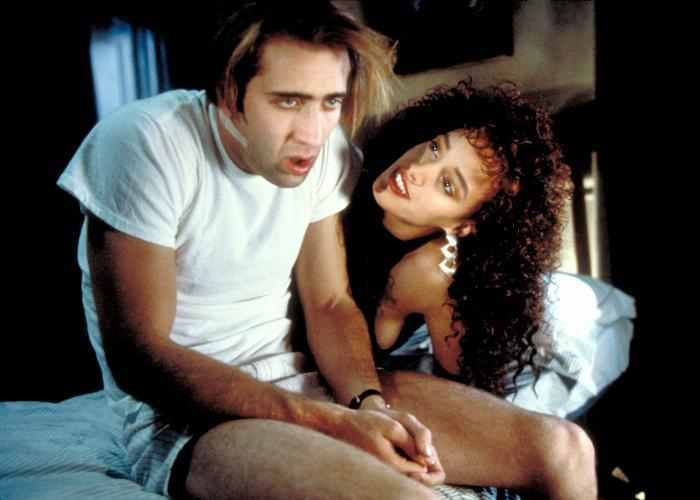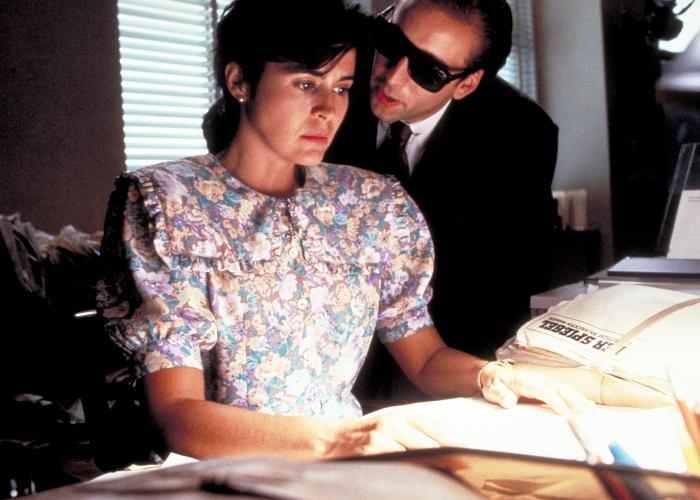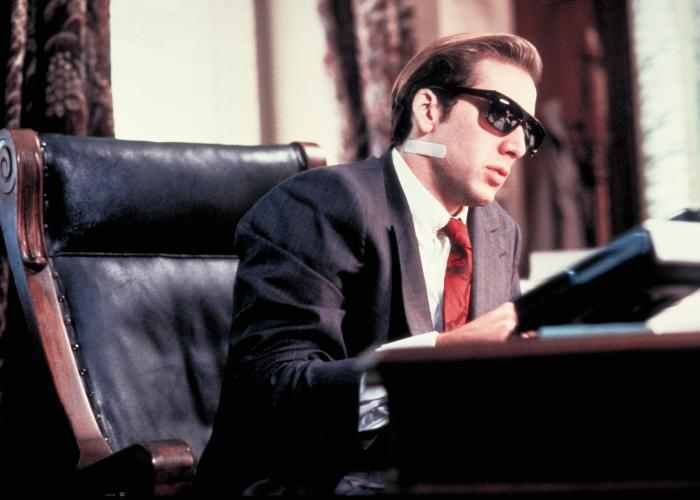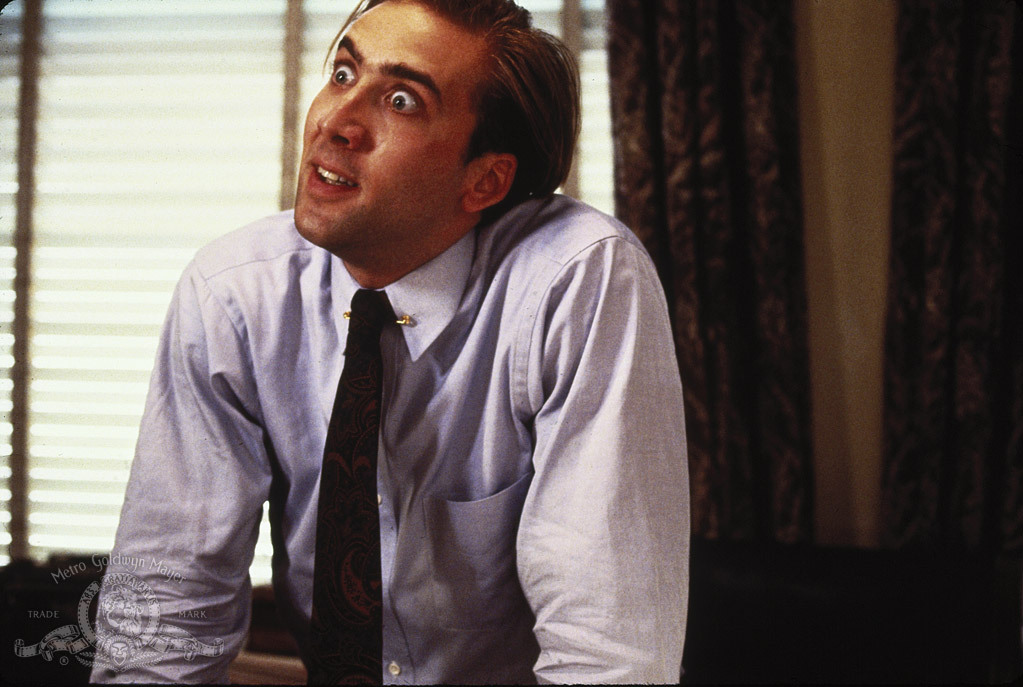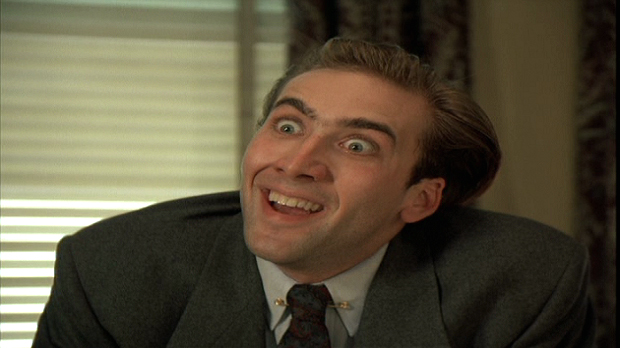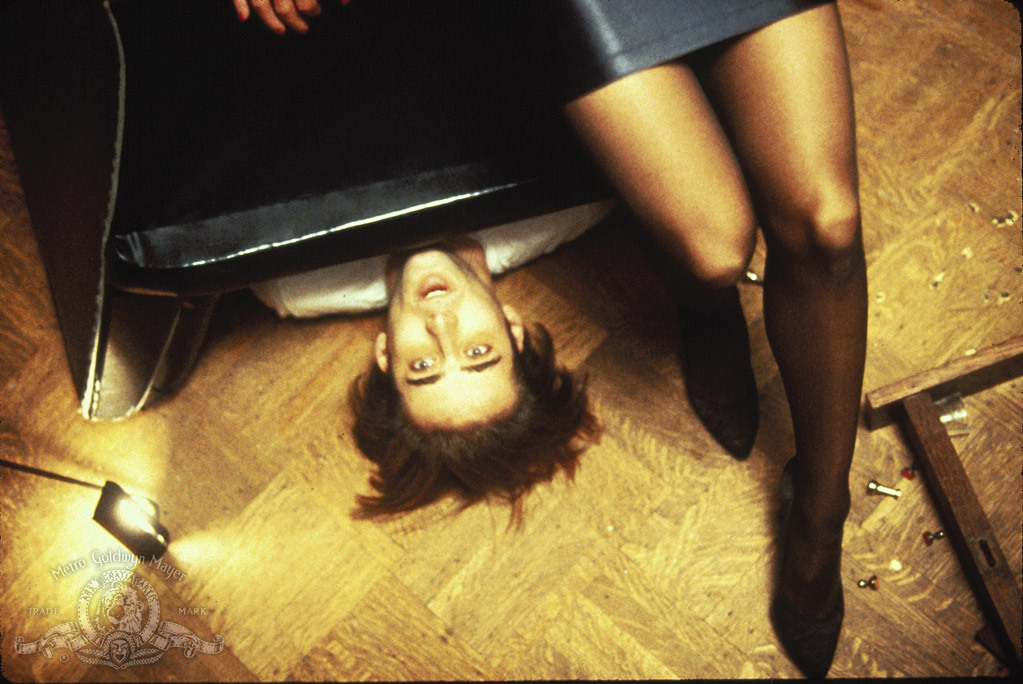Peter Loew is the tormented protagonist of Vampire's Kiss, the 1988 cult classic from director Robert Bierman that combines quirky comedy with Kafkaesque neo-noir. Loew is a Philly-born literary agent in the foreign-distribution division of an unnamed Manhattan publishing house, who's obsessed about an old contract. Despite his yuppified money and status, he simply wants to be loved and to experience a long-lasting relationship. Prince of the one-night stand, perhaps, but he doesn't want to become the Prince of Darkness! He isn't searching for an eternal bond.The irony of Vampire's Kiss is that Loew desires love - and sees a therapist for help with that emotion - but is too shallow. Each time, he winds up only boasting to his therapist (portrayed by Elizabeth Ashley) about his nighttime sexual exploits. Therefore, love eludes him. For example, he's seen engaging in a promising romantic relationship with an attractive, culture-loving woman (portrayed by Kasi Lemmons, a decade before she transitioned from acting to brilliant directing), but moments after getting very amorous, he becomes transfixed and turned on by a bat that is circling the room. Paradoxically, while it takes deep puncture wounds from a vampire to render him immune to love's salvation, those very bites turn him batty.Nicolas Cage as Peter Loew is a sight to behold, and he eerily embodies his eccentric, vulnerable character. From his spazzed-out gesticulations and manic speech delivery to his bizarre spurts of rage, Cage's Loew is a case study of the lack of meaningful human connection and its contribution to escalating insanity. The setup of Vampire's Kiss presents him as a man who's antisocial, arrogant, stingy and misogynistic down to the bone, and only in the light of day can the deep bites inflicted upon him blind his superficial view of women and of life in general.Jennifer Beals deserves special mention for sinking her fangs into a delectable role. Vamping it up for the camera, a post-Flashdance Beals portrays a bloodthirsty barfly (make that barbat ) who manipulates Loew into her object of desire. Obsessive and bicuspid, she alters his destiny in measured erotic doses that are at turns gratifying and gross to watch.An absorbing subplot in Vampire's Kiss concerns sexual harassment. How the movie delves into the issue is not only disturbing but also disarming. The protagonist's predatory behavior with his secretary, portrayed by the versatile actress Maria Conchita Alonso, is delivered in an absurdly repetitious and hilarious manner. I've read reviews that indicate Alonso's character, Alva, was raped by Cage's Loew, but after watching Vampire's Kiss too many times to admit here, I totally disagree. Loew tore off her clothing, and, yes, that was violent. However, considering how depersonalized and despairing he becomes as the film further develops, I believe that he was trying to provoke an assisted suicide.I also don't believe that the storyline involving the worksite tension between Loew and Alva is a distracting subplot. That storyline runs parallel to Loew's descent into utter derangement, and his repetitious - and abusive - demand to see the contract is a device that writer Joseph Minion employs to reveal Loew's expanding insanity. For comparison, recall how Jack Nicholson's writer in The Shining gradually slipped into madness by having to repeatedly stop composing the beginning of his novel because his wife continually interrupted his concentration. In that sense, Loew's loss of patience with Alva's incompetence (i.e., it's not as though the contract doesn't exist) and its violent consequences are similar to the Nicholas character's verbal abuse of his wife, to whom he frighteningly demands, Give me the bat, Wendy. In Vampire's Kiss, prior to Loew developing his supernatural condition, he was behaving erratically at the office. Now, however, his actions -- and the film's humor - veer deeper into dark territory, to the point that the viewer isn't so sure whether to laugh or turn sympathetic. For example, he starts wearing shades by day inside the workplace, performs an existential monologue in front of mirrors in the men's restroom, and -- after he grows impatient waiting for his fangs to develop -- purchases a set of plastic fangs in Chinatown instead of expensive fiberglass prosthetics. After fully accepting his new bad-boy image, he forces his new identity on anyone willing to notice. In one scene in a diner, he disparages a patron who is bragging to her girlfriend about a hansom cab marriage proposal. In another scene he runs through the streets of Manhattan, lisping through fake fangs and yelling at the top of his lungs: I'm a vampire! I'm a vampire! I'm a vampire! However, being a vampire isn't all that it's hyped to be. Sure, he's got the '80s metrosexual look and a job in a skyscraper, but he's afraid of flying - that is, of fully living his life. He's so emasculated that he can't manage to metamorphose into a bat. Later on, he carries a big stick but doesn't have the level of testosterone required to work it. What remains human about him is a tortured being reduced to chasing cockroaches in his brownstone apartment and pigeons on the sidewalk in order to satiate his newfound appetite.As Loew's character transforms more dramatically with the plot, he finds that the greatest conflict is within himself because no matter how hard he tries to fit into society, he fails. That his fake, plastic fangs don't fit comfortably into his mouth was a brilliant metaphor. Fated to be alienated, ever the outsider, he learns what it really means to be a vampire.When modern life sucks, a vampire's kiss leads to eternal suffering.
Show less «

